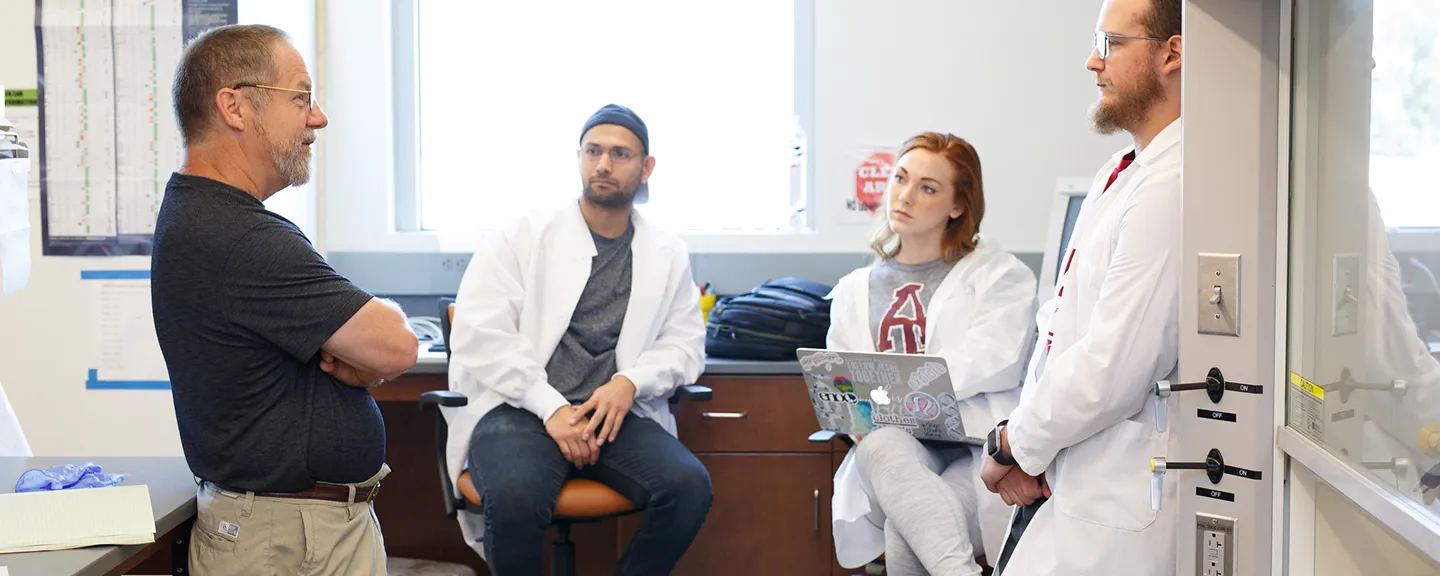- Home
- >
- APU Articles
- >
- News Article
How to Prepare for the MCAT Exam
March 17, 2020 | Written By Heather Nelson

For many, the MCAT exam is synonymous with getting into medical school. Here’s what you should know about the MCAT exam, when to take it, and how to start preparing.
What Is the MCAT?
The MCAT assesses a student’s readiness for medical school. According to the Association of American Medical Colleges (AAMC), the content for the exam falls into four categories:
- Biological and Biochemical Foundations of Living Systems
- Chemical and Physical Foundations of Biological Systems
- Psychological, Social, and Biological Foundations of Behavior
- Critical Analysis and Reasoning Skills
The MCAT exam is administered multiple times each year from January through September. Premedical students generally take the exam the year before they hope to start medical school. It is important to note that you shouldn’t take the exam prior to completing the prerequisite coursework. In fact, you may want to consider taking an MCAT course in order to ensure you are well prepared. If you want to start medical school in fall 2024, then you should plan to take the MCAT in 2023, if prerequisite coursework has been completed and you are well-prepared.
According to the AAMC, the exam follows a biannual registration schedule, with registration opening in October for test dates in January through June and in February for test dates in July through September.
When the time comes for you to take the MCAT, it’s a good idea to register soon after registration opens. Test days can fill up quickly, so it’s wise to reserve your seat early on.
How to Prepare for the MCAT
As you can probably guess, preparing for the MCAT starts well before the exam. This preparation begins by focusing on learning and success in prerequisite and recommended courses.
Students are encouraged to study English and sciences like general biology, general chemistry, organic chemistry, physics, and calculus. These core science courses, plus a semester of biochemistry, are required for the majority of medical schools, so it’s important for students to prioritize these classes while planning academic schedules. In addition to these prerequisite courses, training in microbiology, cell biology, genetics, molecular biology, and mammalian physiology can lead to enhanced preparation for the exam and medical school. These courses are included as part of the majors in the Department of Biology and Chemistry at APU.
Students who show the drive and strong grades in prerequisite courses (A or B) may be admitted to the premedical track by APU’s Department of Biology and Chemistry. Students can apply for this track while taking Cell Biology and Organic Chemistry (typically in the spring of their sophomore year). Once admitted to the pre-medical track, they’ll have greater access to premedical-specific advising, an in-house MCAT review course, a mock interview, and a committee letter.
According to an AAMC survey, students studied for the MCAT exam an average of 20 hours each week for three months. In addition to establishing this sort of schedule, students are encouraged to join study groups, take weekly practice tests to assess progress, use study guides, and care for their health by getting plenty of rest and eating well.
Beyond the MCAT
While getting a good GPA and score on the MCAT can definitely help students move closer toward acceptance into medical school, there are a number of other factors to consider when applying. Medical schools like to see strong problem-solving, oral communication, leadership, teamwork, and service. Students should consider engaging in research, getting shadowing experience, volunteering, and working as a teaching assistant or supplemental instruction leader in order to develop these competencies.
Joining the medical field takes hard work and dedication. But knowing what’s expected, what’s to come, and how to best prepare are the first steps in equipping you for medical school.
Are you interested in learning more about pursuing a career in medicine? Explore APU’s premedical track.